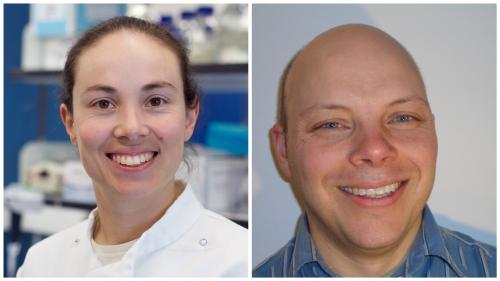
Research by Kris Clark, a former postdoc in Philip Cohen's lab, led to the discovery eight years ago that the SIK subfamily of protein kinases suppress the production of the anti-inflammatory cytokine IL-10 by phosphorylating and inactivating CRTC3, co-activator of the transcription factor CREB. Excitingly, pharmacological inhibition of the SIKs greatly enhanced the production of IL-10, and transformed macrophages from an inflammatory M1 state to an anti-inflammatory M2b state that is thought to be important for the resolution of inflammation and the repair of tissue damage. The inhibition of SIKs also suppressed the production of key proinflammatory cytokines, such as TNF, IL-6 and IL-12 (Clark et al, 2012, PNAS 109, 16986-16991). Later research by another postdoc Nicola Darling working with Kris, identified SIK2 and SIK3 as the critical SIK isoforms regulating cytokine production, suggesting that drugs that target SIK2 and SIK3 might have therapeutic potential for the treatment of inflammatory diseases (Darling et al, 2017, Biochem J. 474, 521-537). Now in a press release on October 27th 2020, the Galapagos pharmaceutical company in Belgium have revealed that their (until now) secret Toledo programme to develop drugs to treat inflammatory and autoimmune diseases is focused on the development of inhibitors of the SIK subfamily. Excitingly, they announced that their dual SIK2/SIK3-selective inhibitor GLPG3970 has been well-tolerated in Phase I clinical trials and that will be entering advanced clinical trials for Rheumatoid Arthritis, Ulcerative Colitis, Psoriasis and other inflammatory and autoimmune diseases in 2021. They also reported that SIK inhibitors had shown promising pre-clinical activity in models of fibrotic disease. Information about the efficacy of these drugs in human patients is awaited with great interest.

